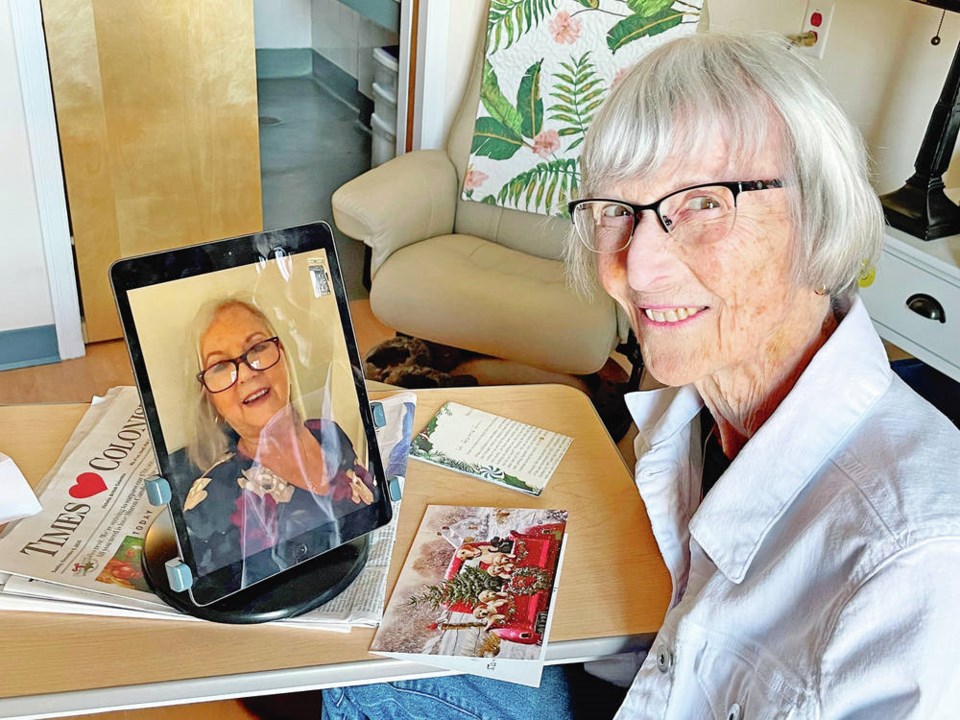Residents of Mount St. Mary Hospital have been able to overcome feelings of loneliness and isolation caused by the coronavirus pandemic by embracing new technology made possible by funding from the Victoria Foundation’s Rapid Relief Fund.
Over the last year the precautionary measures implemented to keep those living in the long-term care home safe from contracting COVID-19 have been heartbreaking for many residents. They cannot leave the grounds - save for doctor’s appointments - and miss social interaction, leaving many feeling abandoned and alone.
“It has been a difficult time for both the residents and their families,” said Jane Bowers, director of philanthropy and communications at Mount St. Mary Hospital. “While we believe these precautionary measures are the right thing to do, residents told us they missed socializing and celebrating memorable events in life, such as birthdays, babies and funerals.”
The long-term care home, which has 200 beds, had launched a Virtual Visit program, using donated hand-me-down iPads to facilitate family connections using Facetime and Skype,
more than five years ago.
Faced with a virtual lock-down and physical distancing, the care home revisited the program.
They immediately discovered the facility did not have enough iPads and the units they possessed were old and outdated. Given the anticipated demand, they determined they would also need more Wi-Fi access points and an increase in data usage limits.
A $30,000 grant from the Victoria Foundation’s Rapid Relief Fund was used to purchase eight iPads and update the Wi-Fi infrastructure. An increase in bandwidth was welcome outside the program, as the pandemic has also caused a surge in data usage due to increased video downloads.
With families and volunteers not being able to support the program on-site, the care home’s Registered Activity Aides took responsibility for the program, guaranteeing virtual visits for any resident.
“It was challenging for support staff and residents at first. But after the new equipment was installed in April, our eyes were opened to the benefits.”
In the first three months of operation, there were between 75 to 100 virtual visits taking place each week, with half of the residents now receiving a virtual visit in any given week.
“Because it was now virtual, residents were able to visit friends and loved ones from all around the world,” said Bowers.
There have been a number of heartwarming stories, including one of an older gentleman who frequently visits a lady friend at Mount St. Mary.
For both of them, being able see each other is meaningful because she is unable to speak. When he was no longer able to visit physically, they turned to the telephone. But the conversation would be one-sided because he could not see her reaction to his stories.
Now he can see her communicate through facial expressions and movements of her body and arms.
While the program is focused on virtual visits by friends and family, a side benefit has been the virtual return of music therapists to engage the residents with music. Music plays a key part in triggering memory in some and serves as a bridge for others to open up and engage.
“It’s heartwarming to see residents come alive with the technology.”
Founded by the Sisters of St. Ann, Mount St. Mary Hospital is home to 275 frail, elderly and vulnerable individuals every year. Residents receive complex care services in a home-like setting that supports their independence. For more information, go to mountstmary.ca.



